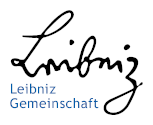- Das Institut
- Forschung
- Diktaturen im 20. Jahrhundert
- Demokratien und ihr historisches Selbstverständnis
- Transformationen in der neuesten Zeitgeschichte
- Internationale und transnationale Beziehungen
- Editionen
- Dissertationsprojekte
- Abgeschlossene Projekte
- Dokumentation Obersalzberg
- Zentrum für Holocaust-Studien
- Berliner Kolleg Kalter Krieg
- Publikationen
- Vierteljahrshefte
- Archiv
- Bibliothek
- Zentrum für Holocaust-Studien
- Aktuelles
- Termine
- Presse
- Neuerscheinungen
- Aus dem Institut
- Themen
- Reordering Yugoslavia, Rethinking Europe
- 75 Jahre Institut für Zeitgeschichte
- München 1972
- Confronting Decline
- Digitale Zeitgeschichte
- Das Deutsche Verkehrswesen
- Bundeskanzleramt
- Demokratische Kultur und NS-Vergangenheit
- Geschichte der Treuhandanstalt
- Akten zur Auswärtigen Politik
- Dokumentation Obersalzberg
- Edition "Mein Kampf"
- "Man hört, man spricht"
- Newsletter
Call for Papers
Experiencing Poverty in the “Affluent Society”: Western Europe and North America in Comparative Perspective
International Conference in Munich
June 15/16, 2023
Organizers:
Professor Andreas Wirsching, Leibniz Institute for Contemporary History, Munich
Professor Bernhard Rieger, University of Leiden
Definitions of poverty have undergone significant transformations in recent decades. For a long time, extreme material deprivation that forces individuals to conduct their lives beneath the minimum level of subsistence has been considered poverty’s most notable feature. Drawing on the notion of absolute poverty, definitions along these lines remain influential in historical studies as well as in investigations of the contemporary United States and non-Western societies. At the same time, social scientists have argued that, despite dramatically improving material conditions that have resulted in the rise of “affluent societies” (John Kenneth Galbraith) in the West since the Fifties, poverty has by no means disappeared in wealthy countries. Instead, poverty has taken on new characteristics there. In the context of Western Europe’s affluent societies, studies have focused on poverty as a form of “relative deprivation” that, in a classical formulation by British social scientist Pete Townsend, “excludes individuals from ordinary living patterns, customs and activities” although they do not fall below the level of minimum subsistence. Next to studying absolute poverty, scholarship has analyzed how relative poverty resulted in social exclusion. A variety of concepts of poverty thus informs the work of historians and social scientists.
As a result of more pronounced social inequality in past decades, poverty has recently attracted growing attention in academic circles and among the wider public. While numerous quantitative studies have assessed structures of inequality and poverty across national borders, qualitative investigations of how everyday experiences of deprivation in affluent countries differ and/or resemble each other have remained rare. Most scholars studying experiences of poverty focus on a specific country, region, or locality.
Focusing on Western Europe and the United States since the late Fifties, our conference aims to broaden existing research agendas by comparing experiences of poverty in Western affluent societies and assess their political significance in their respective national contexts. The experience of poverty always encompasses scarcity and marginality, yet takes many shapes and forms. In addition to definitions of poverty, the contours of labor markets as well as social policies have an impact on those living on the social margins, including the “working poor.” Age factors (e.g. child poverty, deprivation among senior citizens) have shaped poverty experiences as have gender norms, not least due to differing roles women and men play within families. Moreover, a person’s poverty risk is related to his/her ethnic background. While African Americans have long been overrepresented among the poor in the U.S., a disproportionate number of migrants have faced a life in poverty on both sides of the Atlantic.
Finally, poverty is by no means a social phenomenon experienced only by the poor. In affluent societies, the majority of the population encounters poverty through media coverage of social problems, of controversies about social policies as well as protests against specific political measures. Attempts by the poor to gain direct access to the public sphere and make their voices heard publicly have met with notably uneven success. At the same time, media reports affect the poor themselves who reject or affirm public coverage that can intensify or moderate a sense of social exclusion. Closely related to public value judgements, social and individual experiences of poverty are mutually constitutive and provide important contexts political strategies to combat poverty.
Our conference will address three central questions:
- How have individual experiences of poverty evolved in affluent societies in Western Europe and in the United States since the Fifties?
- What public significance have these affluent societies attributed to the problem of poverty in the context of broader political debates?
- In what ways has the politization of poverty experiences and their cultural representations affected policies on both sides of the Atlantic?
We should mention that we conceive of Western Europe broadly, including the affluent societies of Southern and Northern Europe, including Scandinavia.
Our call for papers is directed at historians as well as scholars from cognate disciplines whose work on the experience of poverty comprises historical dimensions. If you are interested in joining us in Munich on June 15/16, 2023, please submit a 300-word abstract of your paper together with a cv of no more than two pages to both organizers by email: b.rieger[at]hum.leidenuniv.nl and wirsching[at]ifz-muenchen.de . The deadline for proposals is April 8, 2022.
The organizers will cover costs for economy travel as well as for hotel accommodation in Munich.



